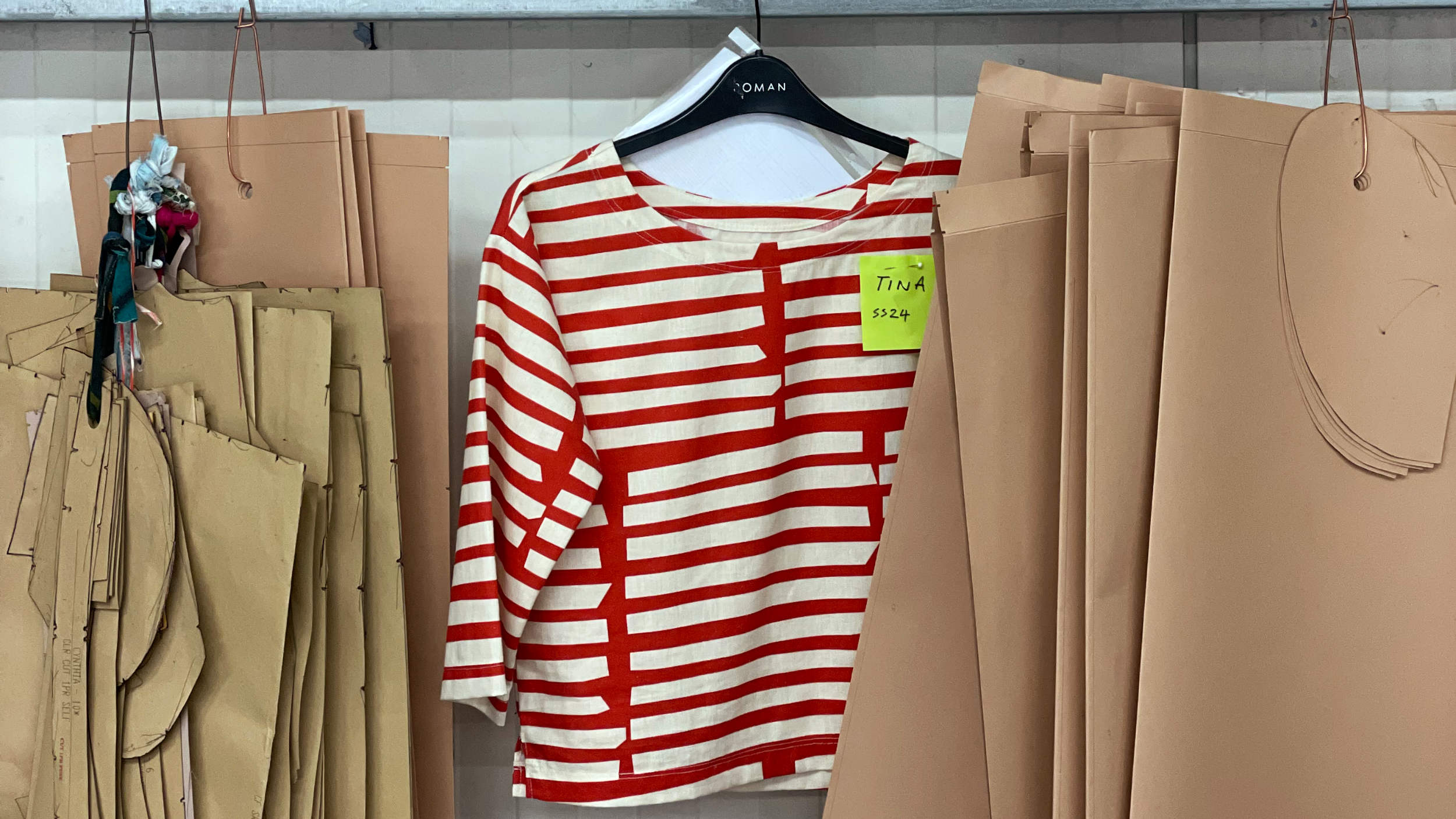
Who Made My Clothes at Palava - Fashion Revolution Week
Why it matters where we make our clothes
In recent years, and especially since the Rana Plaza disaster and the subsequent Fashion Revolution Week movement, there has been an increased focus on where and how clothing is made. While many brands now claim to be sustainable, they still manufacture in the Global South, where labour costs are cheaper. Cheaper labour and making things far away can often make it difficult for companies to know if any corners have been cut when it comes to providing a fair and safe environment for their workers.
So a recent - but not new - way of thinking about clothes production has been named Nearshoring: The idea of making goods closer to the home market. This is something Palava has always practiced: to us it just makes sense to make the clothes as close to the UK as we can! It means we can ensure our workers throughout our supply chain work in safe, clean and positive environments and are well supported to produce the best quality clothing we can make.
Nearshoring production
At Palava, not only do we know our factories and the people who work there, but we have also primarily chosen UK-based factories because they are as close to our main market as possible. And it is an ongoing project for us: we want to continue and even increase the amount of our pieces that are made in the UK. Having our factories close to home means we are able to visit regularly and speak with the people who manage, cut, stitch and sew our clothes to get the best possible product for you. We can also see for ourselves that the people who make your clothes have good work conditions and a safe environment to work in. To us this kind of working relationship is simply good business, unlike the intricate web of agents and subcontractors which many clothing brands rely on, which makes it almost impossible to know whether products are made in a clean and safe environment.
Where are Palava clothes made?
At Palava, we work with only a handful of carefully chosen factories, but our journey starts in Turkey, where the certified organic cotton we use for our knitwear and fabrics is grown and spun. The Tencel Lyocell that we use in some of our dresses is also woven in Turkey. We weave and dye our fabrics in Turkey and also produce our organic cotton knitwear there. Deciding to manufacture in Turkey, where the fibres are grown, means there is less overall transport, and therefore less C02 emissions, from seed to fibre to fabric.
Once our fabrics are ready in Turkey, they travel by lorry directly to our London factory. This journey takes around two weeks, but is far more environmentally friendly than the alternative, which would be to use airfreight to fly the fabric over. There, it is sewn into our dresses, trousers, tops and jackets.
Recently we have been growing our Heritage range, which is also made in the UK and champions traditional manufacturers across the country. We also have a small but beautifully colourful range of socks that are made in France.
Dresses, Trousers, Tops: Made in London, UK
At Palava, we are incredibly proud to have worked with the same small family-run factory on the outskirts of London for nearly a decade on making the vast majority of our sewn garments. We love how easy it is for us to drop by and get updates on production or sampling or help fix any issues that might arise. We visit them regularly and can see first hand that their working conditions are safe and clean and the environment is a positive one.
 Satnam, part of the trio who run our London Factory, is hard at work at the cutting table
Satnam, part of the trio who run our London Factory, is hard at work at the cutting table
Once at our factory, Balbir, his brother Satnam and Julie unload and start to sort. The factory is small and both brothers are very hands-on, incredibly hard-working, kind to their staff and fair businessmen to work with. A good working relationship depends upon trust and the ability to be flexible, problem-solve quickly and be understanding of the challenges each participant in the production process might face.
The working conditions in our London factory are very good. It is a warm, comfortable and positive environment. Every member of staff gets the London living wage or better, and they have communal breaks throughout the day when the whole factory shuts down so they can have a moment to be sociable.
 Balbir, Julie and Satnam run our London factory, helping us make high quality pieces much closer to home
Balbir, Julie and Satnam run our London factory, helping us make high quality pieces much closer to home
This is what Julie, has to say about working with Palava:
“The fabrics can be more challenging than other textiles because of the patterns and the border prints. Working out the best way to cut things out and maximise the yields, so there’s no wastage – it’s all complicated but satisfying at the same time. As a collaboration, it’s also really nice to make things in the UK and keep things here. Small businesses help other small businesses. All the work filters down and helps other people – from the button suppliers, the packaging, the zips and the belts – meaning that these other small companies will be here not just today, but also tomorrow. It's a positive cycle.”

 More members of our London factory team help to press, steam and quality control all the pieces that we make there
More members of our London factory team help to press, steam and quality control all the pieces that we make there
Organic Cotton Knitwear: Made in Izmir, Turkey
 Bryony visits Suleyman, owner of our knitwear factory, in Turkey
Bryony visits Suleyman, owner of our knitwear factory, in Turkey
Our knitwear is made in Turkey, and our partner is the trustworthy Guray whom we’ve been working with for nearly a decade. The factory is clean, warm and comfortable. All of the workers are paid at least minimum wage, as is the law in Turkey. They get annual leave and also receive a free lunch every day at the factory. Some of them have been part of this family-run business for decades and it has provided them and their families with a stable income for generations.

 Guray (in the middle of the top picture) and all the team in Turkey that makes our fabric, prints it and also makes our organic cotton knitwear.
Guray (in the middle of the top picture) and all the team in Turkey that makes our fabric, prints it and also makes our organic cotton knitwear.
We also love that our factory helps its workers by providing a shuttle bus to and from work. This is both better for the environment (as fewer cars are on the road) and also saves the cost of a commute for employees.
On some National holidays, as an extra bonus, the workers are given food boxes full of treats. We might have a word with big boss Bryony at Palava's London HQ as this sounds like a perk we could get on board with in London too!
We feel very lucky to have found such highly skilled and experienced knitwear partners to work with for our production.
 We work with an experienced team to make the best quality we can, as close to home as possible.
We work with an experienced team to make the best quality we can, as close to home as possible.
Why Turkey is Great for Organic Cotton
 Piles and piles of raw cotton in our Turkey factory before it is spun and woven into yarn or fabric to make our garments
Piles and piles of raw cotton in our Turkey factory before it is spun and woven into yarn or fabric to make our garments
We have chosen to source and produce both our fabrics and all our organic cotton knitwear in Turkey. Why Turkey? Because the organic cotton we use is grown in the country, and it is also spun and dyed there, using oeko-tex-certified dyes. That means that from fibre to finished garment, there is as little travel of product involved as possible, keeping carbon footprint down. Sadly, it is still not possible to grow cotton in the UK, but Turkey is the nearest area we could find that offered such a comprehensive solution. Turkey as a nation is aiming to become a global leader when it comes to sustainable clothing manufacturing, and we are proud to be part of it.
For more information about our ethics and production methods, click here to visit our Sustainability page.
Heritage Wool Knitwear: Made in Leicester and Mansfield, UK
A big project we’ve been working on for many years is our Heritage knitwear. This is an ongoing passion project of Bryony’s that aims to work with some of the oldest and most respected manufacturers in the UK with locally sourced materials. It’s a collection that celebrates British Wool and traditional British craftsmanship.
Our Heritage wool knitwear uses wool from the sheep breeds Blue Faced Leicester and Masham Sheep that roam the hills in Yorkshire. We’re proud to make our Molly, Corvette and Popcorn cardigans with specialist British wool manufacturers in Mansfield and Leicester.
 Our first ever Heritage Knit, the Molly cardigan, continues to be made in Mansfield and has pewter buttons that are hand made by Lizzie in Derbyshire
Our first ever Heritage Knit, the Molly cardigan, continues to be made in Mansfield and has pewter buttons that are hand made by Lizzie in Derbyshire
Heritage Jackets: Made in Scotland and London, UK
In 2023, our Heritage Collection expanded to include Tweed Jackets and Waxed Cotton Trench Coats. For both of these pieces, we worked with some of the most experienced manufacturers in the UK. Our trench coats are waxed in Scotland and sewn in London. Our riding jackets are made from Harris tweed made in the Outer Hebrides and sewn together in our London factory. Even the buttons for these jackets are covered in the UK. Both are lined with our original Palava fabrics too, to make sure you always have that Palava pop of colour.
Read more about our Heritage collection here.
 We're proud to work with Kenneth Mackenzie in the Outer Hebrides to make these very special Heritage Jackets
We're proud to work with Kenneth Mackenzie in the Outer Hebrides to make these very special Heritage Jackets
Saint-André-les-Vergers, France
We make all our socks in France, just south of Paris. They are experts in their craft and have been knitting high-quality socks and tights since 1885! We've been working with this well-established factory for over a decade and are really proud of the quality we can produce with them. Learn more about them on their website.
Traceability in the Supply Chain
Transparency is key! To make it easy for anyone to know what they are wearing, who made their clothes and how they were made, we have included a little traceability map in each of the garments’ tags. This shows all the key steps of production as well as a rough timeframe.
 All our garment labels contain information about the fabric composition as well as a little production timeline in their individual 'traceability map' tables
All our garment labels contain information about the fabric composition as well as a little production timeline in their individual 'traceability map' tables
Conclusion
Who made your Palava clothes? Many hard-working people but we know who they are and we are so grateful to them at each and every step along the way. We hope you will cherish your Palava pieces even more knowing the journey they have been on!
If you want to contribute to the ethical fashion movement as a consumer, Fashion Revolution has created this very helpful guide.
We hope you've enjoyed discovering more about the making of Palava. We'd like to keep the conversation going, so if you have any questions or suggestions - please get in touch by dropping us a comment here, or contacting us on Facebook or Instagram.
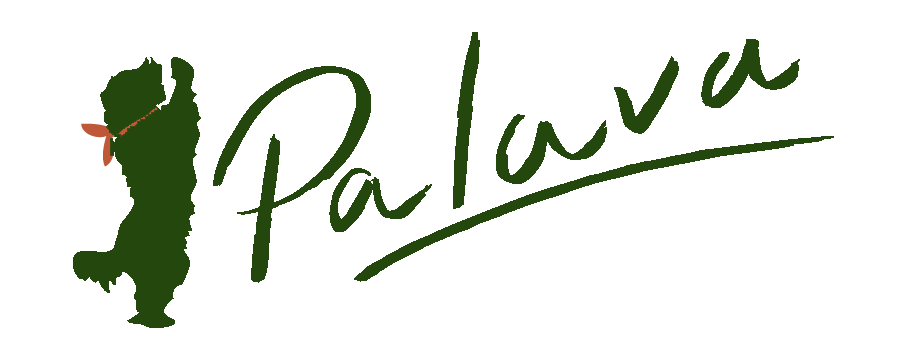

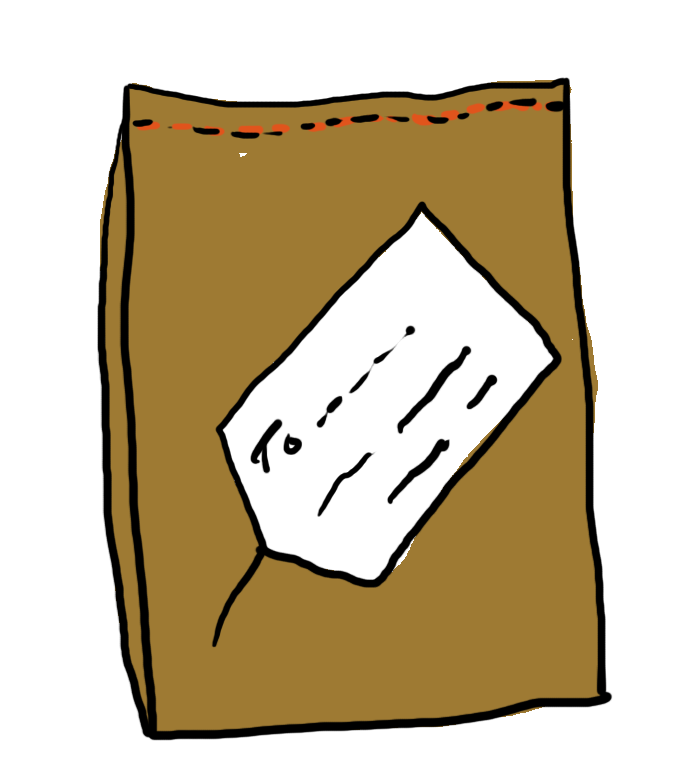
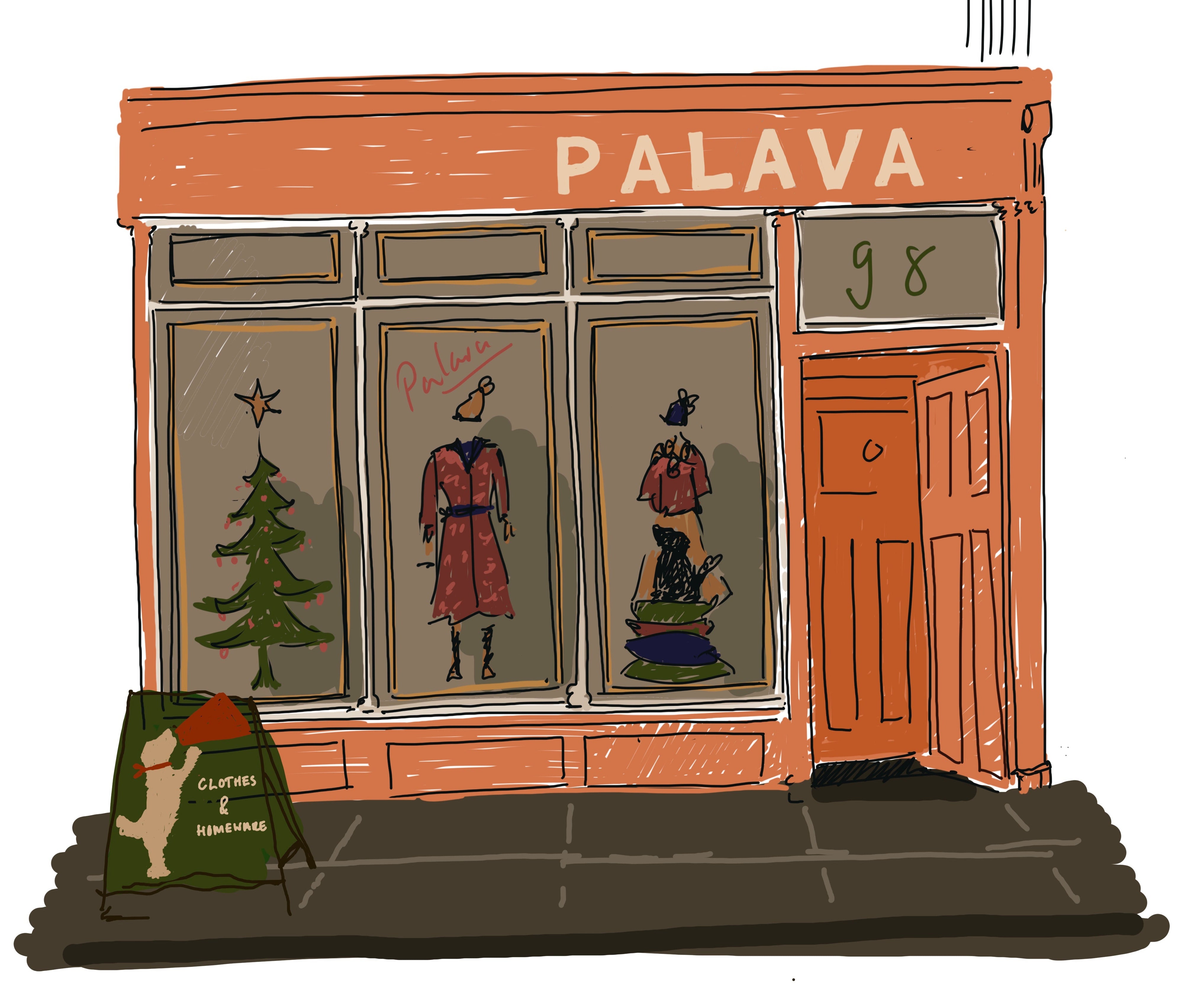
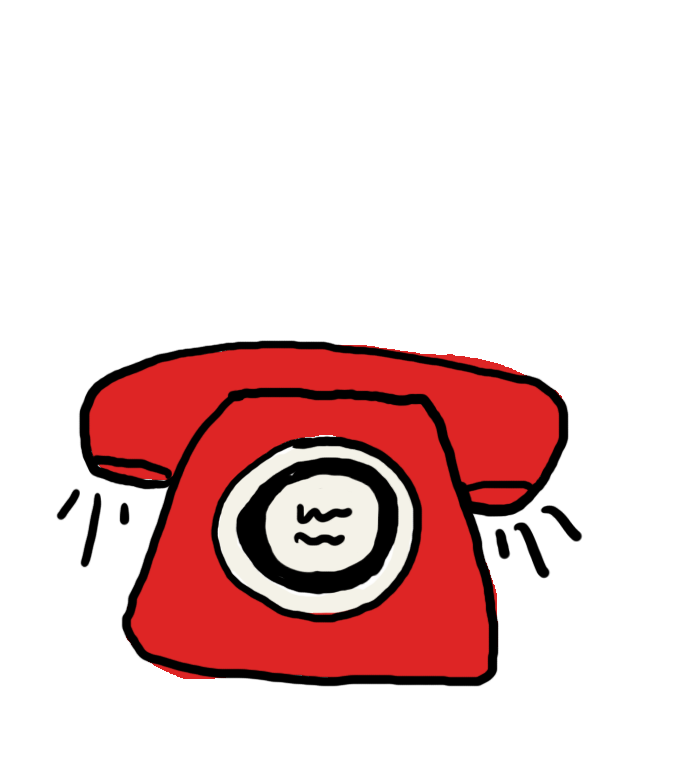
1 comment
I’m obsessing about your clothing and will be purchasing soon. I can see the quality and having previously worked in textiles know the work involved in your beautiful designs x
Thankyou
Michelle Ward
Leave a comment
This site is protected by hCaptcha and the hCaptcha Privacy Policy and Terms of Service apply.